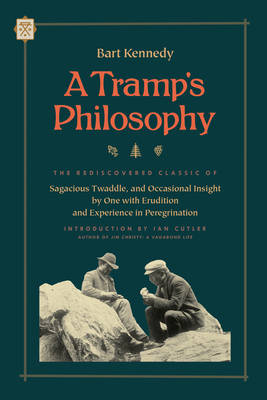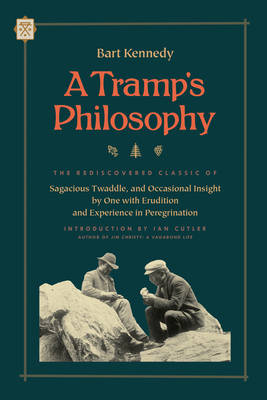
- Retrait gratuit dans votre magasin Club
- 7.000.000 titres dans notre catalogue
- Payer en toute sécurité
- Toujours un magasin près de chez vous
- Retrait gratuit dans votre magasin Club
- 7.000.0000 titres dans notre catalogue
- Payer en toute sécurité
- Toujours un magasin près de chez vous
A Tramp's Philosophy
The Rediscovered Classic of Sagacious Twaddle, and Occasional Insight by One with Erudition and Experience in Peregrination
Bart Kennedy
26,95 €
+ 53 points
Description
Bart Kennedy, the British "tramp" who captivated readers in the early 20th century with his tales of itinerant adventures, wrote over twenty books chronicling the details of these travels. A Tramp's Philosophy was published in 1908, and is a compendium of reflections, musings, and occasionally harsh commentary on the state of the world at that time. Mr. Kennedy's experiences as an "anti-labor traveller" give an unusual perspective of the politics and social concerns of the 1900s. Feral House is delighted to make available this most rare and sought-after of Bart Kennedy's works.
Spécifications
Parties prenantes
- Auteur(s) :
- Editeur:
Contenu
- Nombre de pages :
- 320
- Langue:
- Anglais
- Collection :
Caractéristiques
- EAN:
- 9781627310949
- Date de parution :
- 05-05-20
- Format:
- Livre broché
- Format numérique:
- Trade paperback (VS)
- Dimensions :
- 152 mm x 226 mm
- Poids :
- 453 g

Les avis
Nous publions uniquement les avis qui respectent les conditions requises. Consultez nos conditions pour les avis.






